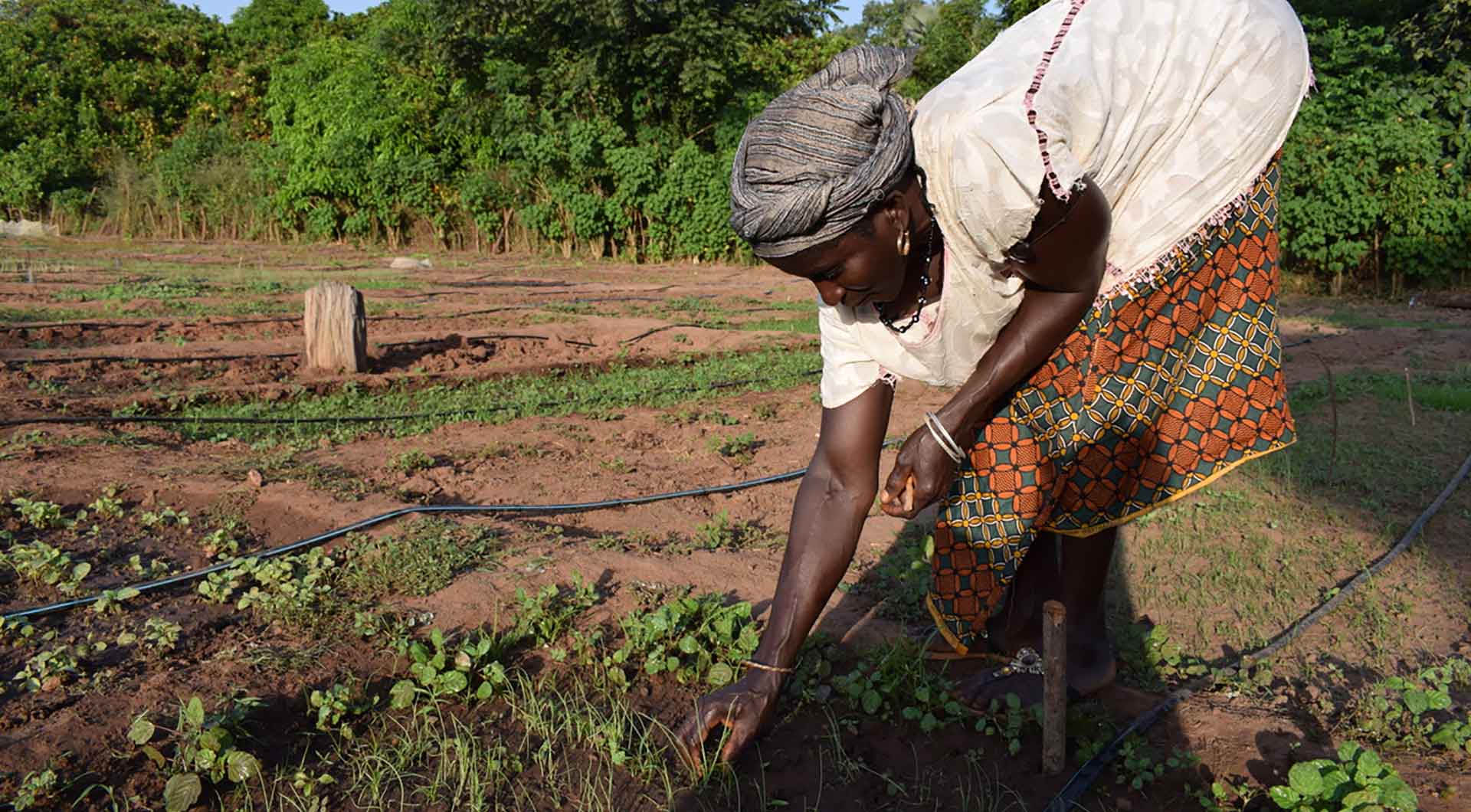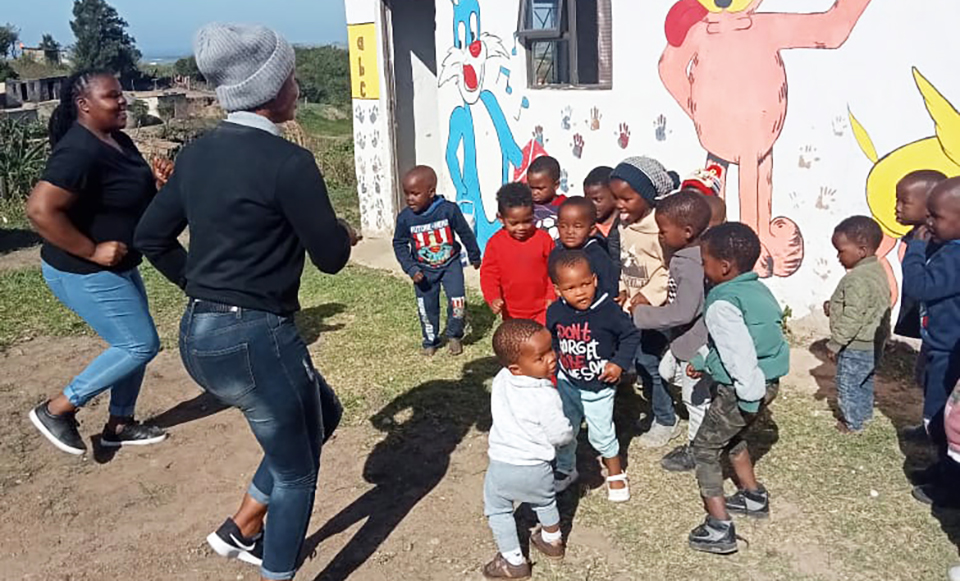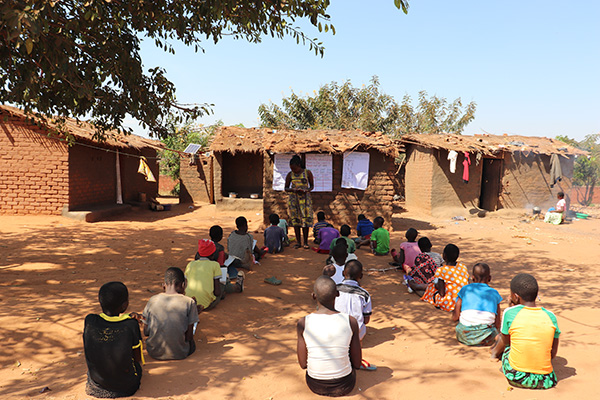
Enhancing Africa’s Early Childhood Education to break intergenerational cycles of inequality
The population of African children is projected to reach 1 billion by 2055, making Africa the continent with the largest number of children. This denotes how critical it is to invest in Early-Childhood Education (ECE) to achieve Africa’s development agenda. This emphasis is reflected in the Continental Education Strategy for Africa (CESA 16-25), which identifies ECE as “the next frontier for Africa to realize sustained quality education”.

However, and despite growing evidence of its importance, ECE remains severely underdeveloped. Some of the sectoral challenges listed by the CESA include inadequate planning, limited resource allocation, poorly trained teachers, and insufficient materials. These issues result in educational disparities, poor management, and a lack of a coherent curriculum across Africa. This situation disproportionately affects children living in rural or underserved communities, where there are few or no preschools to provide quality education during their early stages of life.
As we commemorate the International Day of the African Child we at Humana People to People (HUMANA), recognize the indispensable impact of ECE in breaking intergenerational cycles of inequality. Engaging children in educational activities from a young age equips them with critical thinking skills, literacy, and numeracy, which lay the foundation for academic success. Furthermore, by nurturing emotional and social skills, ECE empowers children to develop resilience and navigate social environments effectively.
We urge Africa’s Heads of States to prioritize invest in Early Childhood Education, to prevent millions of children from starting school at a disadvantage every year. Transforming teaching and learning is paramount in this endeavor, necessitating a shift in classroom practices to foster creativity, critical thinking, and problem-solving skills among preschoolers. The time has come to elevate Early Childhood Education to the forefront of Africa's education agenda, laying the groundwork and continually enhancing it as the cornerstone for meeting the demands of 21st-century skills.
Our Approach
We recognize the critical role of ECE as the foundation for sustainable development and its power to ending inequalities. We recognize the pivotal role of early childhood education (ECE) in laying the foundations for sustainable development and its potential to break intergenerational cycles of inequalities.
For more than 30 years, HUMANA, in collaboration with our dedicated members, has placed a strong emphasis on Early Childhood Education together with its members. Through three main people-centred and community-led flagship initiatives - Preschool of the Future (POF) Movement, Preschool of the Future Teacher Training (POFTT) and Child Aid - we have consistently prioritized and invested in the holistic development of young learners and community education programmes.
Preschools of the Future (POF)
Humana People to People developed the Preschools of the Future (POF) model to provide quality pre-school education to children from disadvantaged backgrounds and support children’s transition from ECE to primary school in a sustainable way.
Humana People to People in South Africa has implemented the POF model to mobilise vulnerable communities to embark on a journey to provide holistic child-centred education for their children in 3 municipalities -eThekwini, Ndwedwe and Maphumulo- in KwaZulu Natal province. Each village forms a Parents’ Committee, collaboratively overseeing preschool operations alongside teachers and a dedicated project leader. Through targeted training in adult literacy, childcare, nutrition, hygiene, and early childhood development, parents become active participants in their children's education journey. This grassroots approach fosters a ripple effect throughout neighboring communities, representing a significant stride towards achieving universal access to education for all children.
In 2023, more than 1,600 students were enrolled in 43 preschools and as result the students are more active, eager and able to learn. Additionally, these preschools have effectively reduced the drop-out rates in primary schools, showcasing their positive impact on educational continuity and retention.
Preschool of the Future Teacher Training (POFTT)
We recognize the role early-childhood teachers play in helping children to thrive and learn. The one-year Preschools of the Future Teacher Training (POF-TT) programme aims to improve the quality of ECE in vulnerable communities by providing training that enables support of unemployed young people with a preschool teacher qualification.
In Namibia and South Africa rural preschool teachers are recruited locally and trained by our members, DAPP Namibia and HPP South Africa, through POF Teacher Training schools. In the past five years, 482 POF teachers have graduated from these schools.
Child Aid
Preschools are an integral part of the community development that Humana People to People strives for through its members projects. For this reason, the Child Aid programme supports children, parents and the entire community in collaborating to enhance living conditions for children and address the challenges in the whole preschool development process.
DAPP Zimbabwe’s Child Aid Bindura/Shamva project works with 2,000 families organized in 80 Village Action Groups (VAGs). These come together to identify challenges and mobilise themselves to find solutions to ensure that no child is left behind. Additionally, parents form the School Development Committee oversee the preschool and provide valuable support and resources to ensure its sustainability. The project also aids children without parents to enrol in preschools and support them in remaining enrolled.
At HUMANA, we believe that education is every child in Africa, regardless of their location, race, parental status, disability, gender, or any other status. By improving access to quality Early Childhood Education, we are not only addressing current educational disparities but also laying the foundation for a prosperous and equitable future for the continent. We will continue to invest in education and community development programmes to instil communities with hope, promote cohesion and create equal ECE opportunities for all

